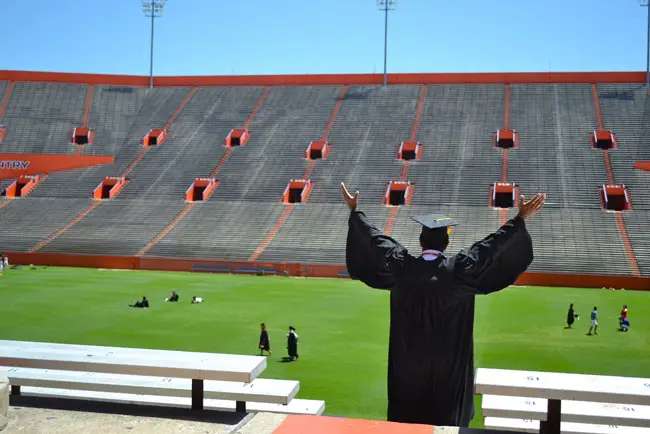
A higher education task force is moving toward a recommendation that would significantly increase the power of the Florida Board of Governors, allowing the panel to set the budgets for each of the state’s 12 universities.
The move would be a dramatic shift that would also take away some of the power generally reserved for the Legislature, though two influential lawmakers on higher education seemed comfortable with the transition. But it could also draw some opposition from the universities themselves, whose ability to lobby the Legislature for additional funds could be curtailed.
The idea behind the proposal is to give the Board of Governors more power to make sure the schools follow the State University System’s strategic goals. University of North Florida president John Delaney, a member of the Florida Blue Ribbon Task Force on State Higher Education Reform, compared the board’s attempt to govern the university system to holding up a stop sign.
“Under the current system, the presidents can just shoot holes in the stop sign,” Delaney said.
The Legislature’s ability to control the slice of state money heading to each school has occasionally led to friction between the universities and lawmakers.
During the last legislative session, Senate Budget Chairman JD Alexander, R-Lake Wales, pushed a one-time funding cut of $300 million that was seen as more heavily punishing the University of South Florida for its resistance to his efforts to achieve independence for USF’s Lakeland campus. The proposal was eventually modified.
But task force members were still focused on the idea that presidents can do an “end run” around the Board of Governors to gain extra funding by lobbying legislators. Delaney admitted it would be a hard sale.
“There obviously will be a lot of pushback from the universities and the boards of trustees,” he said.
But outgoing House Education Chairman Bill Proctor, R-St. Augustine, and Rep. Marlene O’Toole, a Lady Lake Republican who heads the House panel in charge of funding colleges and universities, sounded supportive of the idea. Frank Fuller, an education adviser to the Florida Senate, was more cautious and pushed for a gradual approach.
Task force members are still grappling with what to do about tuition rates for the state’s universities, but seem likely to move for greater flexibility for at least research universities to set their own rates. That would seem to run counter to the low-tuition instincts of Gov. Rick Scott, who set up the panel.
The most dramatic potential recommendation could allow tuition to increase to the national average by July 1, 2016. Universities have often noted in pushing for greater tuition authority that their tuition levels are well below the national average.
Regardless of the fate of the proposal concerning averages, the recommendations are likely to move toward giving universities more control over tuition. Proctor, who pushed a bill giving universities greater tuition power through the Legislature only to have Scott veto it, said he thought most schools would use any new authority carefully.
“Not many schools are going to price their way out of existence,” he said.
Fuller was more cautious about the idea, suggesting that perhaps degree programs in areas that the state most desperately needs should have more controlled tuition increases.
“The state would backfill the funding in that area,” Fuller said.
A handful of the task force’s members, including Proctor and Fuller, are set to meet Wednesday to hammer out a compromise idea. The report is scheduled to be delivered to Scott by the end of the month.
–Brandon Larrabee, News Service of Florida




























Fred Peterson says
gotta get that left wing engineering out of education, you know, stuff like facts, they gotta go
glad fly says
got to love the picture of “the swamp”….GO GATORS!